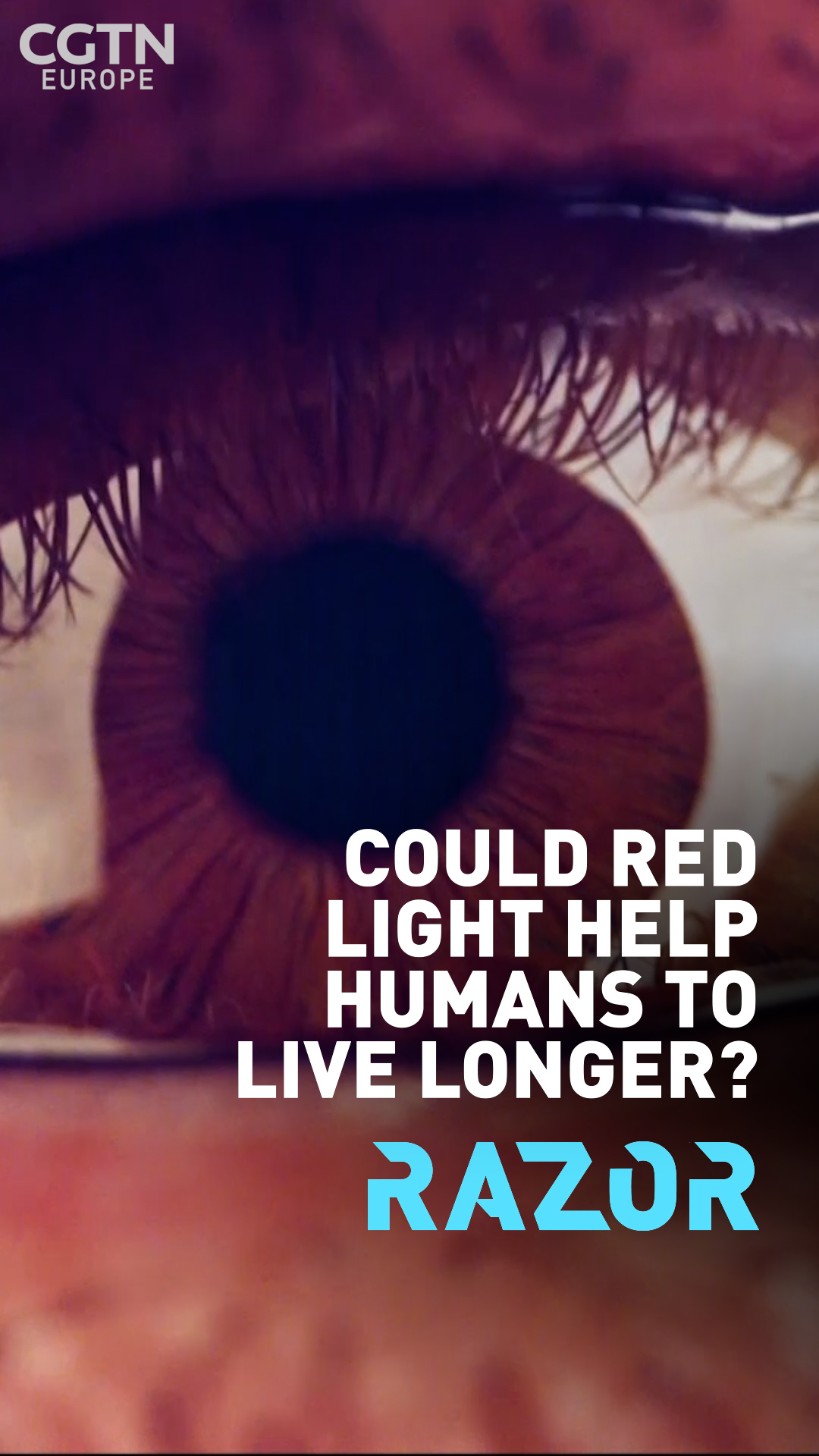02:37

Scientists in the UK are hopeful that new research into red light therapy could help humans to live healthier, longer lives.
Professor Jeffrey at University College London initially studied the impact that red light has on the quality of life of fruit flies and was stunned by its impact.
He told RAZOR: "The first thing we realized is that not only did we improve the metabolism of the flies but also the flies lived longer. They were much healthier in old age.
"Research has also shown that they were healthier cognitively. They remembered things they wouldn't have done without the red light."

Could red light help humans to live longer, healthier lives? That's what scientists are trying to find out at University College London after an astonishing study revealed it boosted the health and lifespan of fruit flies./RAZOR
Could red light help humans to live longer, healthier lives? That's what scientists are trying to find out at University College London after an astonishing study revealed it boosted the health and lifespan of fruit flies./RAZOR

But why exactly is that? The red light was focused on the mitochondria in the flies, that operate as the batteries inside each living cell.
As flies, humans and many other living organisms grow older, the mitochondria grows weaker, resulting in a decline in health, but the red light appeared to have a recharging effect.
Jeffrey added: "People probably think that we're using magic crystals and don't think that this is real, so we invested four years trying to find out exactly what the red light was doing to the metabolism and energy of the organisms."
Jeffrey now believes that red light could also be used to boost the health of humans as flies have almost identical mitochondria. His current study is focusing on improving eyesight.

Red light boosted the metabolism, brain performance and lifespan of fruit flies in a study conducted by University College London./RAZOR
Red light boosted the metabolism, brain performance and lifespan of fruit flies in a study conducted by University College London./RAZOR
"The retina ages faster than any other part of your body," Jeffrey explained. "I can test it very carefully because it's got more mitochondria than any other part of your body. "I can ask people 'can you see this any better?' 'How much better can you see it?'"
As part of his new research, Jeffrey is testing the impact red light has on the retinas of 24 healthy adults between the age of 28 and 72 with no previous eye disease.
The volunteers are required to shine a red light torch onto the eye for three minutes every morning after studies into fruit flies found that mitochondria were responsive to red light at very specific times of the day.
Early results have shown a marked improvement in eyesight and Jeffrey hopes his latest research will eventually prove that red light could be used as a treatment to improve eyesight in older people.

